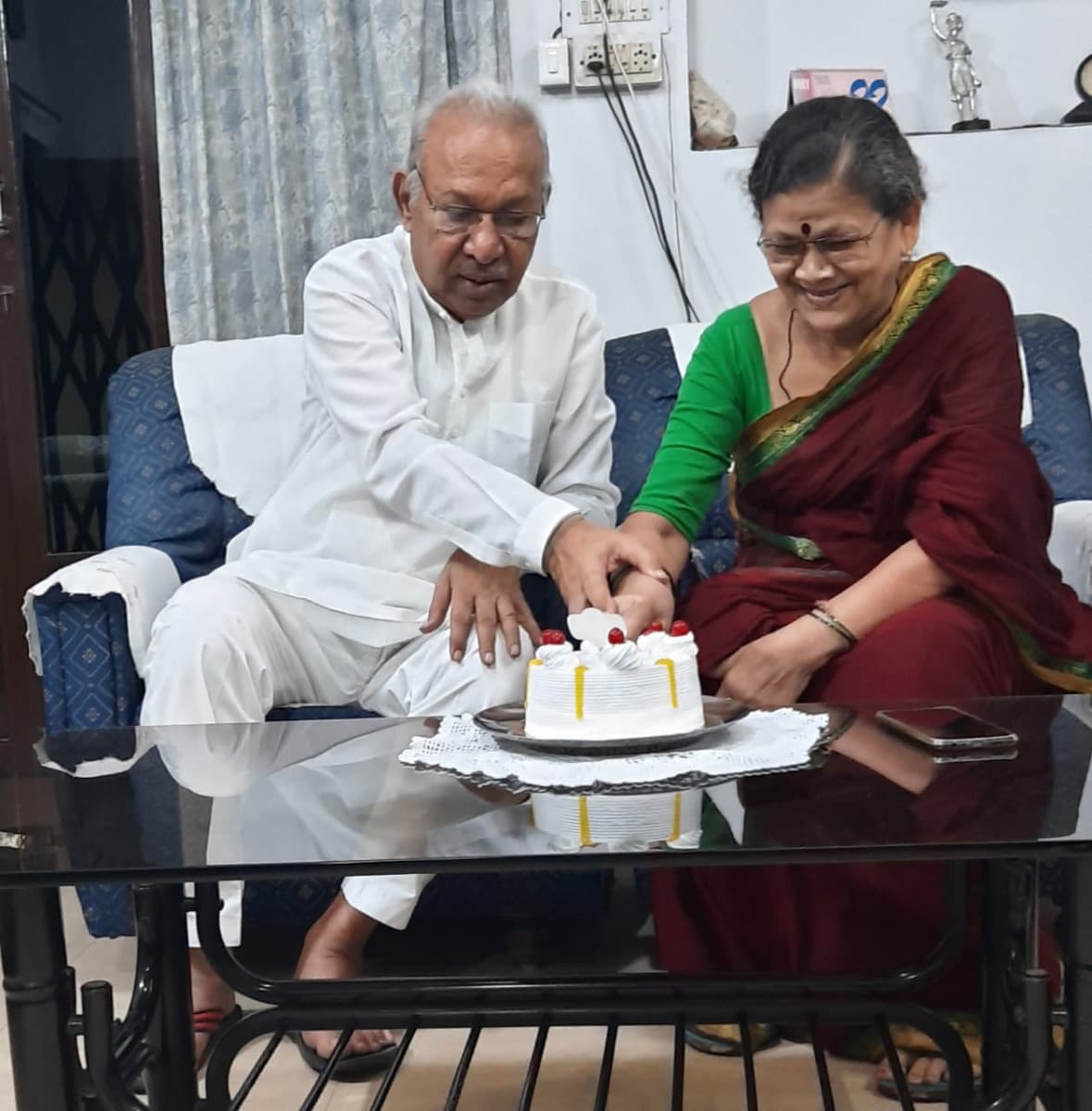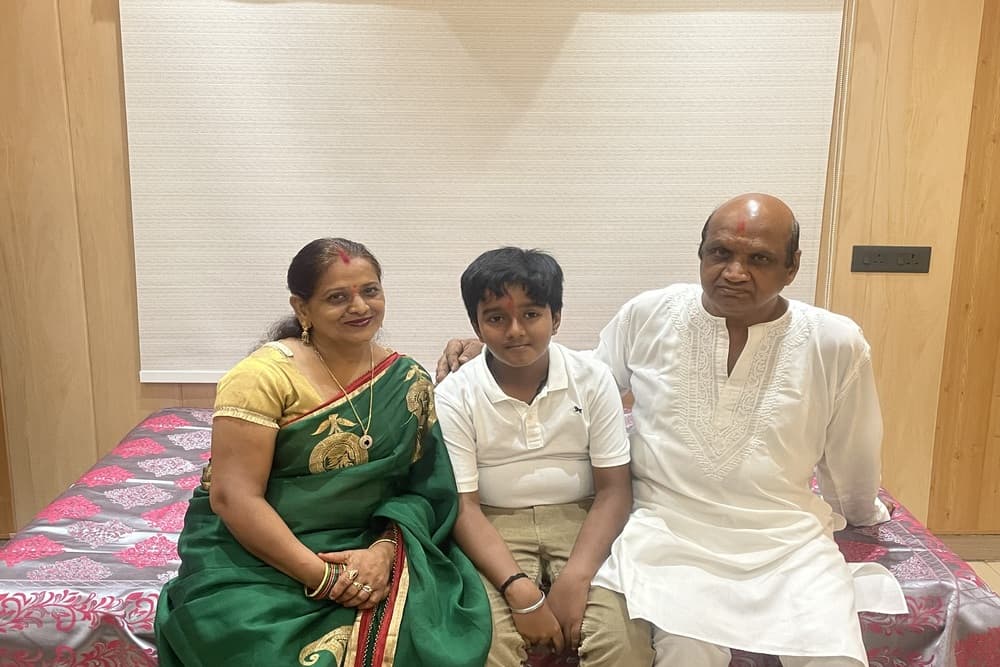Sunil Kumar, 70, a retired associate professor from Delhi University, began cycling as a hobby just before retirement in 2019 on the persistence of his daughter and son-in-law, who were regular cyclists. He last cycled in 1974, about 40 years ago. It was a challenge, but he had to decide. “I told them I can’t do it now at age 63. The year was 2016. I was hesitant. When they gifted me a cycle, I had two options—ride it or hang clothes on it. I chose cycling. I started cycling in my society first, and when my stamina improved, I went to other places,” says Kumar.
Also Read: Pradhan Mantri Shram Yogi Maandhan Yojana: Who Are Eligible For This Pension?
Kumar, who originally hails from Nainital, loves cycling and trekking and has three cycles—Road, Mountain, and Hybrid bikes—which he rides solo or in groups with his cycling club members. He had been to Bhutan on a cycling trip, and Tour De Kalinga with his club members.
Kumar was awarded the Super Randonneur (SR) honour for long-distance cycling, given to individuals for cycling 200, 300, 400, and 600 km, etc., by Audax India, affiliated to French Cycling Club Audax France.
Also Read: Senior Living Vs Independent Home: Choose What Suits You Best
Trekking took him to Adi Kailash, Om Parvat, and one of the Everest base camps since 2001. Trekking also helped him quit smoking, a long-time habit he had been struggling to get rid of.
“They asked me to stop smoking when I joined them. It was their only requirement. I said I would quit, but they didn’t believe me and asked me to inform them of the progress over the next six months,” says Kumar. However, he kept his word. He walked 10-12 km daily from his house to college to improve his physical strength before he began his trekking expeditions.
Work and Retirement Planning: ‘Wasn’t Ready To Take Financial Risks’
Kumar started teaching at Dayal Singh College in Delhi in 1976. He did not plan for a retirement corpus. His only investments during the job were in the Employees’ Provident Fund (EPF), where he contributed significantly. Says Kumar, “I just wanted my money to remain secure and did not look for different avenues. We would get 12 per cent, and I thought it was a good return. When the government changed the rate to 8 per cent, and even then, I found it reasonable.”
“I was not ready to take risk, so I invested only in EPF”. At the time, it was not only him but many of his colleagues also had only the provident fund for savings and nothing else, he says.
“We managed our needs with whatever salary I got; my wife never asked me for anything. I don’t remember buying her gold or other ornaments. We kept our desires in check, and my wife managed the family well within my financial means; it always felt more than sufficient.”
Also Read: It All Starts With A Dream, A Financial Roadmap And Diligent Work For A Happy Retirement
Post-Retirement Life: ‘Principal Investment Should Remain Intact’
Healthcare expenses are a major area in retirement planning. Though Kumar had no pension guarantee when he retired, he and his family were covered under the central government health scheme (CGHS). “I never used CGHS, but my wife, a diabetic patient, needs medication, and therefore, I have used it only for her until now,” says Kumar.
Unlike people in his age group, he does not have fixed deposits. However, he invested the money he got at retirement in post office small savings schemes, mutual funds and gold bonds in consultation with his family—wife, son, daughter, and son-in-law.
The family lived on a strict budget as he started receiving monthly pensions only about two years after retirement. It was a big relief for the family when the monthly cash flows began. Kumar is financially independent but takes children’s help for digital transactions. He doesn’t use ATMs or credit cards or make UPI or net banking transactions but keeps a debit card for emergencies.
Says Kumar, “My children can check my account details online, but I have to go to the bank because I am not comfortable using cards, UPI, or online banking.” However, he has one piece of advice for them: It doesn’t matter whether the investment growth is high or low; what matters most is always safeguarding the principal amount.
Estate Planning And Life:
When one of his brothers died last year, Kumar realised the importance of writing a Will. So he plans to gather more information about it and write a Will for himself soon.
Though always on his wish list, Kumar says he started travelling only after retirement, and has been to the US, Turkey, Thailand, and Dubai. Currently, in Canada, Kumar plans to visit Gujarat and foreign destinations like Singapore and Vietnam after returning home.
Also Read: Review Your Will Before It’s Too Late
Have A Purpose And Be Content:
He does not like imparting ‘gyan’ (lessons) to his children or anyone. For him, relationships are more important than money. “You should have sufficient to meet your basic needs. Beyond that, I don’t give too much value to money. I feel relationships are more important”. He says, summing up, “Have a purpose in life and be content with what you have”.
For now, he’s busy planning his return journey to India in March, when he can pick up his cycling passion after a six-month hiatus.




